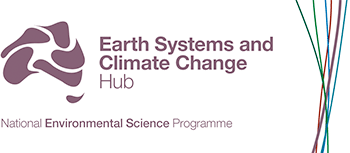‘Flash droughts’ can dry out soil in weeks. New research shows what they look like in Australia
New research into flash droughts and how they occur in Australia may help to allow warning of flash drought in advance.
New research into flash droughts and how they occur in Australia may help to allow warning of flash drought in advance.
Research, published today in Nature Climate Change, found that emissions drops during COVID-19 could soon be undone, as unchecked economic recovery would see global emissions bounce back to pre-pandemic levels.
The Australian State of the Climate 2020 report reveals a picture of long-term climate trends and climate variability. The biennial climate snapshot draws on the latest observations and climate research from the marine, atmospheric and terrestrial monitoring programs at CSIRO and Bureau of Meteorology.
Climate change may actually increase the number of burn days in some places, but the windows of opportunity will shift towards winter months. The bad news is that burning during these months potentially increases the public health impacts of smoke.
Methane emissions have continued to rise over the past decade and are tracking concentrations consistent with the warmest IPCC scenario.
COVID-19 has affected global emissions in six economic sectors, with a significant decline in daily global emissions. Total daily emissions in early April were similar to those observed in 2006.
Mathematical models are used to project the Earth’s future under a warming world, but a group of the latest models have included unexpectedly high values for “climate sensitivity”.
Global emissions for 2019 are predicted to hit 36.8 billion tonnes of carbon dioxide (CO₂), setting yet another all-time record. This disturbing result means emissions have grown by 62% since international climate negotiations began in 1990 to address the problem.
The figures are contained in the Global Carbon Project, which today released its 14th Global Carbon Budget.
Firestorms are (pyrocumulonimbus bushfires) are fires so intense they create their own thunderstorms, extreme winds, black hail, and lightning. Human-caused climate change has already resulted in more dangerous weather conditions for bushfires in recent decades for many regions of Australia. This article outlines research which shows that from 2060 onwards, sharp increases in dangerous fire days across southeast Australia that coincided with atmospheric conditions primed to generate firestorms are projected. These extremely dangerous days also shifted across seasons, starting to appear in late spring.
Nitrous oxide (N₂O) is the third-most-important greenhouse gas after carbon dioxide and methane. Human-driven N₂O emissions have been growing unabated for many decades, but we may have been seriously underestimating by just how much. In a paper published today in Nature Climate Change, we found global emissions are higher and growing faster than are being reported.
The IPCC Special Report on the Ocean and Cryosphere in a Changing Climate (SROCC for short) was released last week, and confirms climate change related impacts are occurring in the seas at an unprecedented rate with serious implications for Australia. ESCC Hub research informed the findings of the report.
Our coastlines play an important role in how we live, providing recreational outlets, supporting ecosystem biodiversity and containing millions of dollars’ worth of infrastructure and assets. Ocean waves, as well as sea levels, are important when considering climate risks to our coastlines. If warming continues in-line with current trends we are likely to experience significant changes in wave conditions with potential implications for coastal infrastructure and ecosystems.
Methane is the second most important greenhouse gas contributing to human-induced climate change. A new technique could restore methane concentrations to pre-industrial levels.
The pattern of El Niño has changed dramatically in recent years, according to the first seasonal record distinguishing different types of El Niño events over the last 400 years.
8 February 2019 Matthew Fraser, Ana Sequeira, Brendan Paul Burns, Diana Walker, Jon C. Day and Scott Heron The ESCC Hub is working with World Heritage Site Committees to provide…
